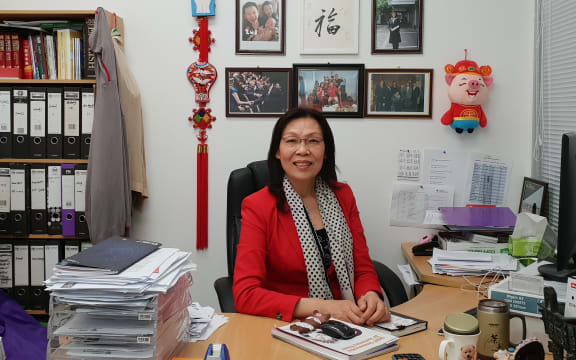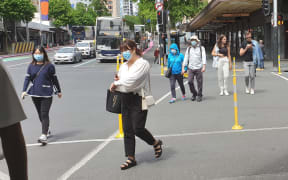
A group of migrant workers from China who found promised work evaporated once they arrived in new Zealand includes construction workers and a pastry cook. Photo: 123rf.com
A charity accused of threatening to withdraw help from exploited migrants if they spoke to media says the incident was a "misunderstanding" caused by a staff member.
The CNSST Foundation, also known to the Chinese Community as Hua She Fu (华社服基金会), offers a range of services to new Asian migrants, and in the last financial year received more than $3 million from the Ministry of Social Development (MSD), as well as funding from the Ministry for Business, Innovation and Employment (MBIE) and Immigration New Zealand.
The organisation has been helping workers who paid tens of thousands of dollars for their visas, but found they were dismissed within days or weeks of arriving in New Zealand.
But in May, a CNSST staff member sent a message to a WeChat group of more than 100 workers, stating that the charity would not help them if they spoke to media, and that part of the reason was that speaking out may make the Chinese and New Zealand governments look bad.
The message warned media coverage would compromise the workers' privacy and that afterwards unscrupulous employers would run away or disappear, concluding with "If you choose the media, we would not help you".

CNSST chief executive Jenny Wang Photo: RNZ/Liu Chen
CNSST chief executive Jenny Wang initially told RNZ they could not comment on the staffer's message due to privacy concerns, but has since said in a statement that the whole thing was a miscommunication.
"This issue is a misunderstanding where one CNSST staff member, who is not an authorised spokesperson, ... was trying to say that the services provided by the organisation to workers and new settlers (which are education, assistance with housing and social issues and employment advice related services) do not include advice on how to talk to the media," she said.
Wang confirmed the staff member works full time for the charity, and its website listed them as a senior manager and a licensed immigration advisor.
Wang maintained CNSST had not told any clients to not talk to media.
"To clarify CNSST has never told any client or person we have advised not to talk to the media - rather we said if the exploited workers wanted to do so then they needed to understand that media relations is not a skill set or service provided by our staff," she said.
RNZ requested CNSST provide evidence of this communication, but had not yet received it.
When asked for her thoughts on the message sent by the staffer, Wang said: "Unfortunately, this was also not communicated well and our staff member (who is not an authorised spokesperson), despite their good intentions, was trying to explain to the contrary that the media coverage because it involved exploitation of migrant worker may be embarrassing for the government as they would find out about the particular issue in the media first.
"It is fact that no government anywhere likes surprises, and the New Zealand government is no exception," she said.
Wang said help given to the group of 155 Chinese workers did not use direct funding from the New Zealand government.
She said the work done to help them was voluntary.
When asked how the charity funded the staff hours spent on helping the 155 workers, Wang said it could use its own income sources from its social enterprise services - including Chinese language schools, immigration and translation services, vocational training, accounting education and international study tours.
MBIE engagement and experience manager Suzanne Boslem said they did not condone the message CNSST sent to workers.
"While MBIE will not comment on CNSST's organisational polices and its work on supporting victims of migrant of exploitation, we do not condone their recent messaging to exploited migrant workers," Boslem said.
"MBIE strongly encourages people to speak up publicly on migrant exploitation and to come forward to report exploitation, whether they wish to do so publicly or in confidence."
Boslem said MBIE would take CNSST's actions into account in future funding and contracting decisions.
MSD earlier said it would be concerned if a service provider told clients not to talk to media, but had since spoken with CNSST about the issue and was satisfied with internal steps the charity had taken.
RNZ approached CNSST for comment on what "internal steps" had been taken.
CNSST was founded in 1998 and supports more than 15,000 new migrants each year. It had a team of 23 full time paid staff, 74 contracted professionals and more than 50 long-term volunteers.






